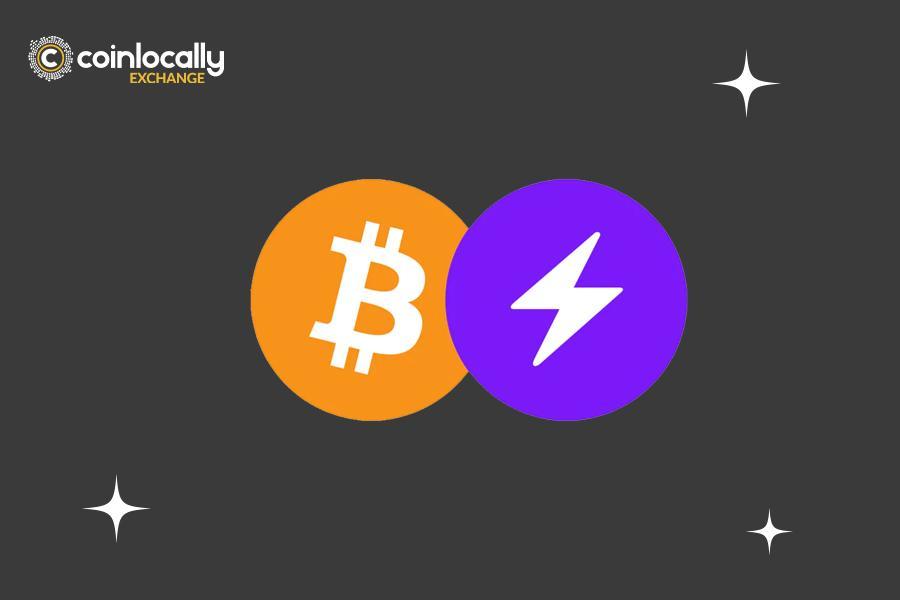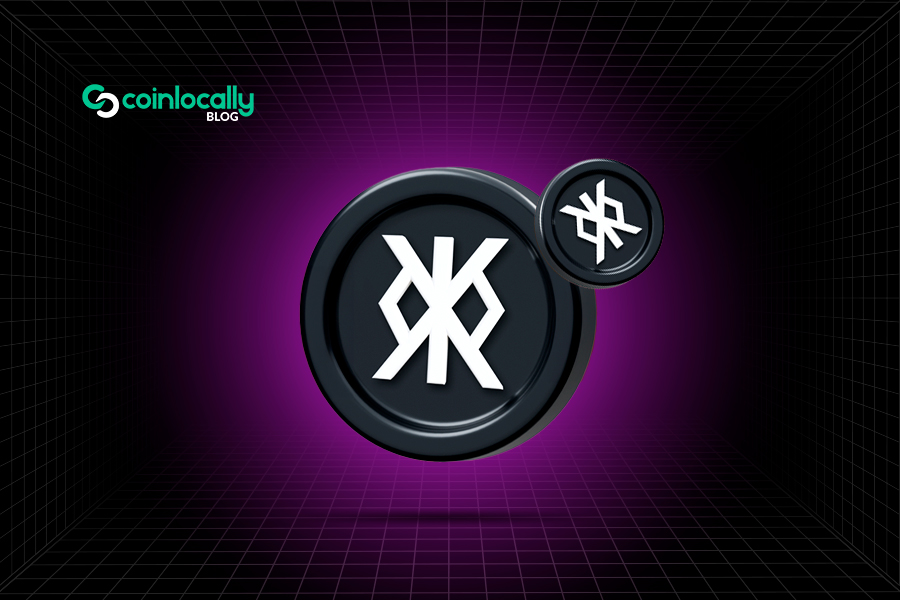Bitcoin and Lightning are two wallets that have become quite important in recent years. Given that both these wallets have specific upsides and downsides, we will explore the differences between Bitcoin Wallet and Lightning Wallet in what follows. We will also explain which one you should pick for Bitcoin transactions.
Table of Contents
Understanding Bitcoin Wallet
A Bitcoin wallet is a digital tool for keeping, sending, and receiving Bitcoin. It works by creating a unique pair of public and private keys. The private key functions as a secret password, and the public key works like your Bitcoin address.
When you want to send Bitcoin, you use your private key to sign a transaction, proving that you own the coins. So, instead of storing actual coins, a Bitcoin wallet stores the key to access and control your Bitcoin.
What is the Lightning Network?
Before discussing the Lightning wallet, it is a good idea to examine the Lightning Network and explain how it came into existence.
The increasing popularity of Bitcoin has brought to light scalability issues such as slow transaction times and high fees. The Lightning Network emerged in 2016 as a promising second-layer solution to address these limitations.
The Lightning Network was developed to take care of several critical issues, including:
- Transaction Delays: The traditional Bitcoin network prioritizes transactions with higher fees,s, resulting in longer wait times for users who pay lower fees.
- Energy Consumption: The energy-intensive block mining process on the Bitcoin network contributes significantly to its environmental impact and operational costs.
- Secure Fund Transfer: The Lightning Network uses smart contracts and multi-signature technology to ensure that funds are securely transferred between participants.
By operating as a layer on top of the Bitcoin blockchain, the Lightning Network enables faster and more cost-effective off-chain transactions. Users can establish payment channels with each other and facilitate multiple transactions without relying on the slower leading network for each individual exchange.
These channels allow for flexible fund transfers between participants, with the final settlement occurring only when the channel is closed. Now that we know why the Lightning Network was developed, let’s examine its wallet.

Understanding Lightning Wallet
Lightning wallets are designed to work with the Lightning Network. Instead of directly sending transactions on the Bitcoin blockchain, these wallets allow users to create payment channels with each other and enable them to send and receive Bitcoin directly.
To use the Lightning Network, users establish payment channels with each other. These channels function as private payment channels where multiple transactions can occur without being recorded on the main blockchain until the channel is closed. Once the channel is closed, the final balance is updated on the Bitcoin blockchain.
Since the Lightning Network transactions are speedy, they are ideal for frequent, small-value transactions such as micropayments. In contrast to traditional Bitcoin transactions, which are public and recorded on the blockchain, Lightning Network transactions remain private between the two parties involved.
To initiate a payment, users can generate QR codes that contain payment information. When scanned, the payment is processed instantly without the need for miners to confirm the transaction. This streamlined process greatly speeds up payment times.
Bitcoin Wallet vs. Lightning Wallet Pros and Cons
In this section, we will discuss the advantages and disadvantages of each wallet.
Bitcoin Wallet
Below is a list of the pros and cons of the Bitcoin wallet.
Pros
- Security: Bitcoin wallets offer high security due to the decentralized nature of the blockchain.
- Privacy: Since Bitcoin transactions are pseudonymous, they provide users a high level of confidentiality.
Cons
- Slow Transactions: Bitcoin transactions are considered slow, especially during periods of high network congestion.
- High Fees: Transaction fees during peak network usage are pretty significant.
- Complexity: Using Bitcoin wallets might be complex for those unfamiliar with cryptocurrency technology.
Lightning Wallet
These are some of the main pros and cons of using Lightning wallets.
Pros
- Speed: Lightning wallets offer considerably faster transaction times than traditional Bitcoin wallets.
- Cost-Efficiency: Besides being fast, Lightning transactions are generally more affordable than on-chain transactions due to off-chain processing.
Cons
- Limited Merchant Adoption: Merchants’ widespread adoption of Lightning technology is still in its early stages.
- Centralization Concerns: The Lightning Network relies on specific nodes, introducing a degree of centralization.
- Closed-Channel Fraud: Closed-channel fraud occurs when a user ends a payment channel before a transaction is finished. This can happen if a user intentionally closes the channel to avoid paying or accidentally goes offline.
Continue reading as we discuss the main differences between these two wallets below.
Bitcoin Wallet vs. Lightning Wallet Differences
Now that we have covered the fundamentals of Bitcoin and Lightning wallets, let’s compare them based on six key features.
Bitcoin Wallet vs. Lightning Wallet Comparison
| FEATURES | BITCOIN Wallet | LIGHTNING Wallet |
| Transaction Speed | Slow | Fast |
| Security | High (blockchain security) | High (blockchain security + channel protocols) |
| Transaction Fee | High | Low |
| Ease of Use | User-friendly | More complex |
| Scalability | Low (7 TPS) | High (millions of TPS) |
| Decentralization | High (thousands of nodes) | Medium (fewer nodes) |
Transaction Speed
The Lightning Network is considerably faster in terms of transaction speed. While Bitcoin transactions will likely take 10 minutes or more to confirm, Lightning Network transactions are nearly instantaneous. They are generally completed within a few seconds.
Security
Bitcoin wallets benefit from the robust security of the Bitcoin blockchain, which uses a decentralized proof-of-work consensus mechanism. Lightning wallets inherit this security but introduce additional complexity through payment channels.
While there are risks associated with channel closures, mechanisms are in place to mitigate these risks.
Transaction Fees
This is another factor that differentiates the Bitcoin wallet from the Lightning wallet. Transaction fees on the Bitcoin Network fluctuate widely, particularly during periods of high network congestion. This can make it expensive, especially for small transactions.
In contrast, Lightning Network fees are significantly lower, making them ideal for micropayments and frequent low-value transactions.
Ease of Use
Concerning ease of use, Bitcoin wallets generally offer a more user-friendly experience, especially for beginners. Many user-friendly wallets are available, and users do not have to worry about complex setups.
Although Lightning wallets have made significant progress in terms of user experience, they still require users to manage payment channels, liquidity, and routing, which can be more challenging for less tech-savvy individuals.
Scalability
Regarding scalability, the Bitcoin Network has a limited capacity of around 7 transactions per second. This can lead to congestion and increased fees during peak usage.
The Lightning Network, on the other hand, is highly scalable. Theoretically, it can handle millions of transactions per second. The Lightning Wallet is set up for widespread adoption and future growth.
Decentralization
The Bitcoin Network is fully decentralized, with thousands of nodes securing the blockchain globally. This is not the case with the Lightning Network.
While it operates on top of Bitcoin, the Lightning Network relies on fewer nodes, which could introduce several centralization concerns. However, despite this drawback, it remains more decentralized than traditional financial networks.
Bitcoin Wallet vs. Lightning Wallet: Which One Should You Pick?
When selecting a Bitcoin wallet, consider your specific needs. A traditional Bitcoin wallet is suitable if you plan to hold Bitcoin for long-term investment (HODLing). It offers robust security and allows you to store your Bitcoin without frequent transactions.
However, a Lightning wallet is a better option if you intend to use Bitcoin for regular payments and smaller transactions (SPENDING). Lightning wallets enable faster, cheaper, and more private transactions. They are specifically beneficial for micropayments and frequent interactions.
Interestingly enough, some Lightning wallets even support features such as stacking, which allows you to earn rewards on your Bitcoin while it is in your wallet. This feature further improves the overall user experience and the potential benefits of using Lightning for spending and earning.
Overall, the best choice depends on your individual preferences and transaction habits. If you prioritize security and infrequent transactions, a Bitcoin wallet is ideal. For those who value speed, low fees, and frequent transactions, a Lightning wallet is the best choice.
Final Words
One thing is clear: both Bitcoin and Lightning wallets are important technologies in the Bitcoin ecosystem. As we highlighted above, it all boils down to your transaction preferences. Bitcoin wallets provide security and are suitable for larger transactions, while Lightning wallets offer speed and cost-effectiveness.


